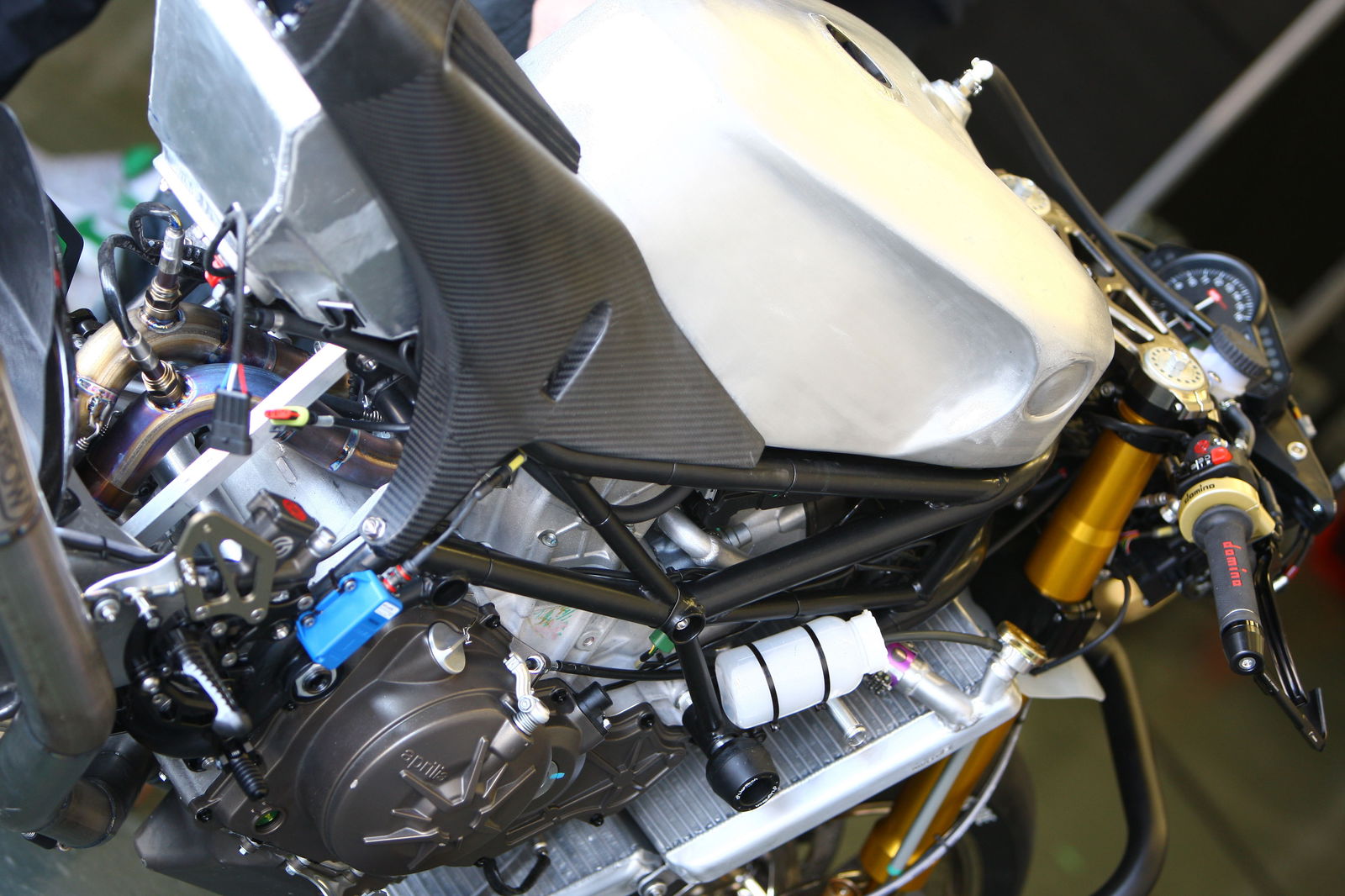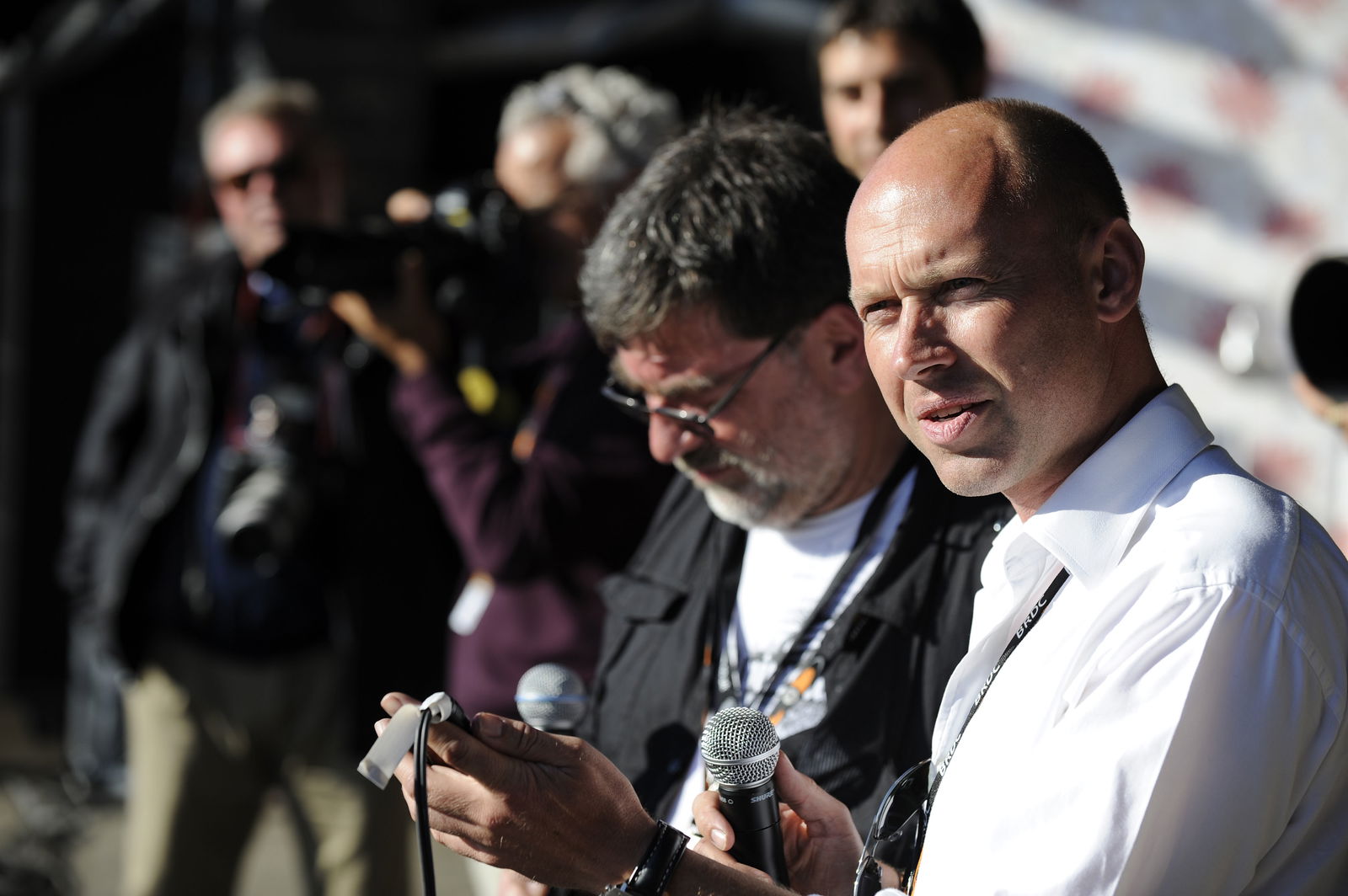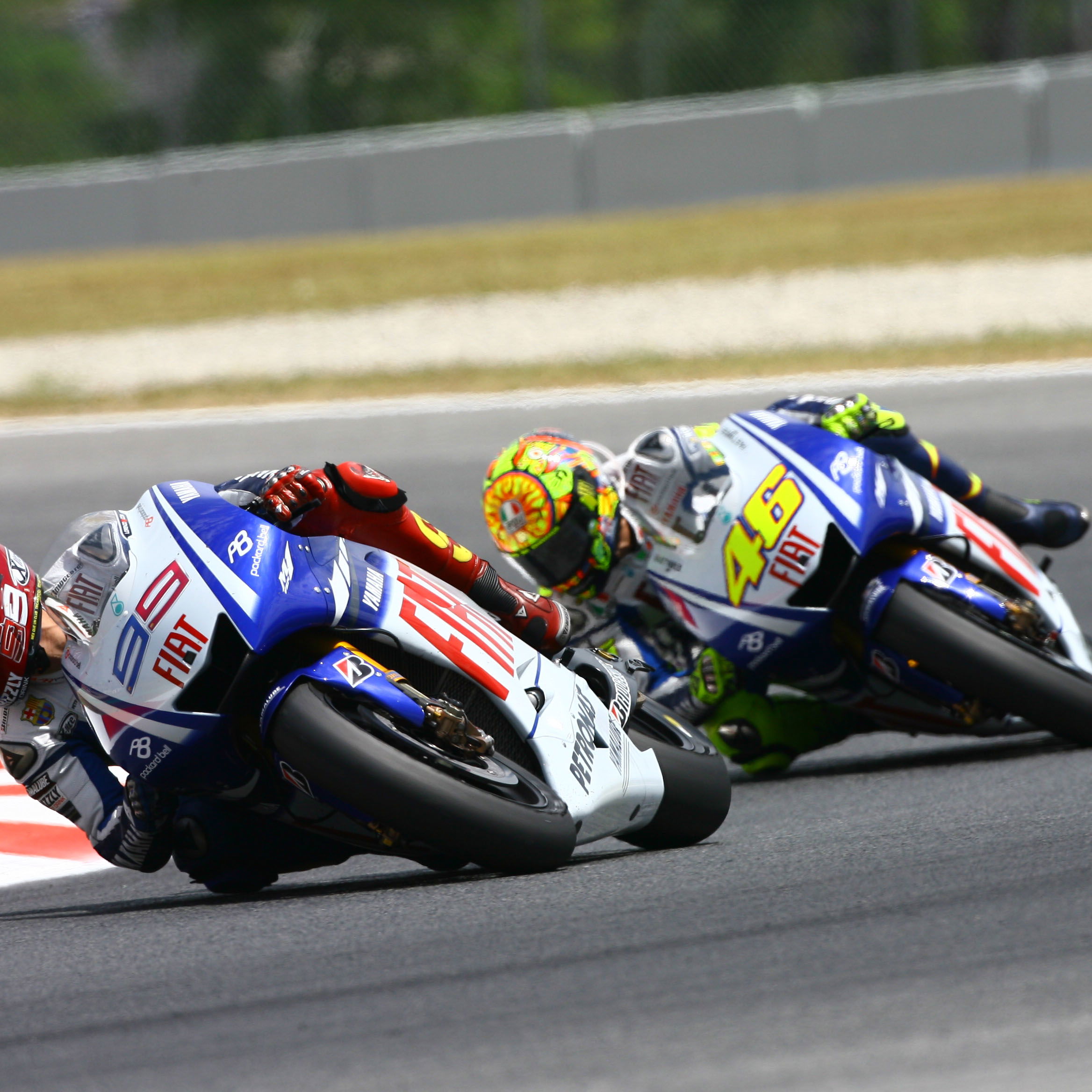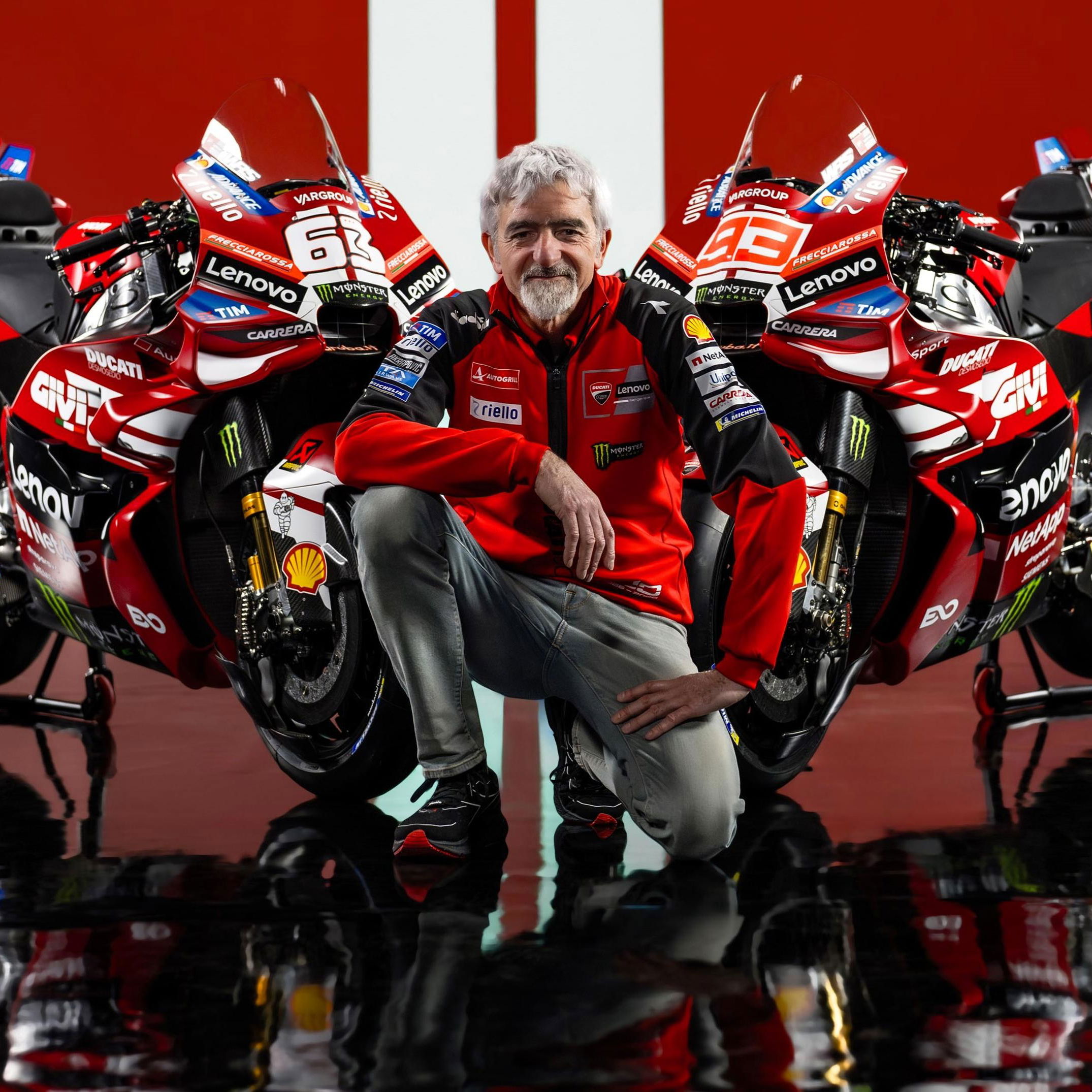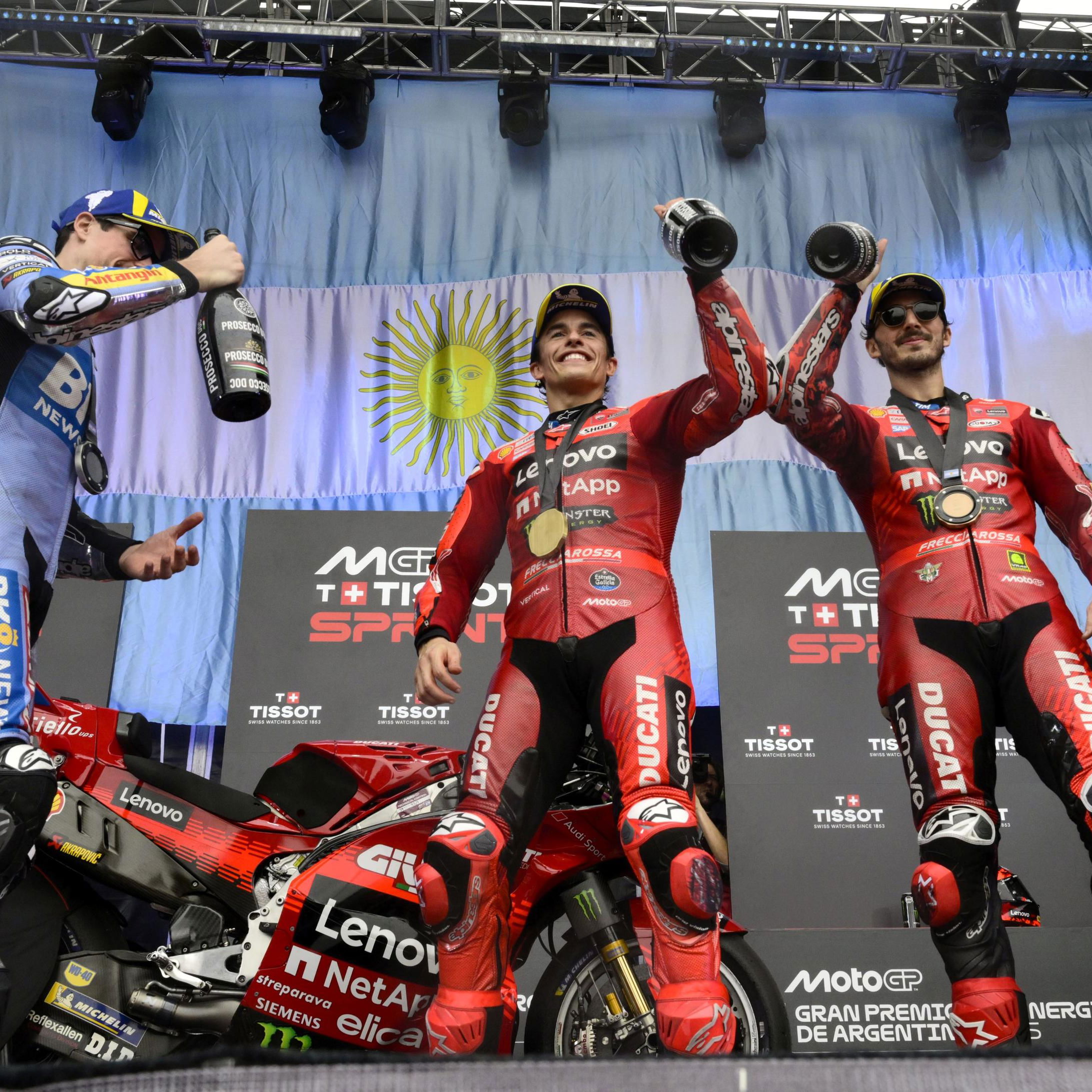Casey Stoner - Q&A

Following his dominant performance at the Sepang test at the beginning of this month, Casey Stoner has returned to his European base in Lausanne, Switzerland, where Stoner has enjoyed the first few weeks of fatherhood with wife Adrianna following the birth of his first child, Alessandra Maria Stoner.
With almost a month's rest under his belt, reigning MotoGP champion Stoner will return to Malaysia for the next test on the 1000cc RC212V as the countdown to the opening race of the season at Losail in Qatar on April 23 continues.
Q:
Specifically, how is the 1000 different from the 800 on corner entry, mid-corner, exit?
Casey Stoner:
Well, the only thing I think, not so much from the 1000 to 800, but just an improvement that we've made with Honda, is braking stability. The wheelbase is maybe a little different and when we go on the brakes we've, of course, got a bit more stability as we're going into the corner. The rear's not wanting to hop up as much. So we can actually sink our hands into the brakes a lot harder. So it's actually changing the braking points by a little bit less than what we'd expected, because our bike has improved quite substantially in that point. I'd say corner entry is exactly the same. Everything from that point on is very similar. I think it's mainly just chassis-wise that we've improved. The weight of the bike is exactly the same, the way it's going to react is very similar, if not the same.
Q:
Is the weight of the RC213V the same?
Casey Stoner:
Now we've gone four kilos, but that was quite recently that they decided to add that. The bikes were designed and built and then they go, Ah yeah, we're going to add four kilos. So I don't think that's really the right way forward. And I hope they fight it. I hope they fight it and win because you don't make rules and change it at the last minute when the bike's already developed. So I think the extra four kilos isn't changing anything like that anyway. It's more or less the same weight. If it was 20 kilos difference in the bike, it might be a bit of difference. At this point it just feels very similar to the 800. The only thing that's different for us is the way the chassis feels. Like I said, I think we've made some improvements with that. And just corner exit, we're able to use that power a lot better, we're able to get a more torque out of the engine, have a lot more control with the engine because it's not so peaky. And actually I've found a lot more traction. Because of the extra torque and control, it wants to drive out of the corner a lot longer before it spins.
Q:
Can you be less precise with the 1000 and still get away with it?
Casey Stoner:
I'd say no. In a small way I think maybe, because of that extra torque you've got you can just square the corner off then and shoot it out. But the 800s already had a lot of power. And especially by the end of their time they already had a quite substantial amount and too much. You're still spinning up everywhere. So I'd say, no. I think you've still got to ride them in a very similar way. Try to ride them very accurately and everyone's just trying to massage out the bugs at the moment.
Q:
If you make a mistake, is it less forgiving than the 800?
Casey Stoner:
No, I think it's very similar. The 800s, maybe you were carrying a little bit more corner speed. Because you didn't have the same power on the 800s then you didn't have the same problems with wheelies. The 1000s, of course, especially on a small track with a short gearbox, is just going to want to wheelie quite a lot, so that's going to be something you'll have to think about. So they did turn a little bit harder and you keep a little bit more throttle in the middle of the turn really. But such a minute amount. You can still ride them in exactly the same way. I was watching some of the lines out there of everybody today and looking at some of the black marks. They're using the whole track still. I'm using less and less of the track, because I'm happy with that extra bit of torque. But in general you can still ride them in both ways.
Q:
You've said that having a child is going to give more meaning to your life. When did you come to this realisation?
Casey Stoner:
Four years ago, I'd say. I've always known there's more to life than just racing for a long time. But when I finally decided this isn't going to be me for the rest of my life I started looking for things that I can do away from racing, that's my fishing and things like that I really enjoy. And spending as much time with friends as I can. Things I've just missed out on because this championship doesn't permit you to do that. And all my good friends race in other championships, so we're all busy on opposite weekends and we just never get time together. And you miss those things and you learn that you're supposed to appreciate the time that you've got together and try and spend as much time as you can.
Q:
You've won a title before. Is it harder to win a title or defend a title?
Casey Stoner:
I think there is no defending a title. You don't go into a season with a points advantage over anyone. So I don't think it's ever a title defence. I think you've got a different number on your bike, if you choose so, but everyone starts at zero again. Especially this year; we're going from 800s to 1000s, so there's nothing similar to the past year except we're running tyres on bikes and we're doing the same kind of championship, but a completely different category you could call it now. So, I don't think you ever go into a season trying to defend your championship. I think you're going out trying to attack for another one.
Q:
The year after you won your championship you had a number of problems, which made keeping the number one plate more difficult.
Casey Stoner:
I think we didn't start out so great with the bike, the 2008 bike. We struggled with quite a lot at the start of the season. We were having a lot of pumping issues and trying to figure out with chain tensions, all that sort of thing. Even just small things like that to try to stop the slack, try to stop the pumping problems we were having. But then we had a camera come off and flap around my bike in Estoril, which no one's even realized that. We had an engine go on us in Le Mans. Then we had major issues at the end of the year with my wrist falling to pieces, but everyone just remembers me losing the title. But I think we put up one hell of a fight considering the year we had. And I think I proved to everybody that we had every right to be champion again that year, but it wasn't to be. Things didn't go right. Same in 2009. We were leading the championship when my lactose issue started to play havoc in our lives. It was pretty much only 2010 that we didn't have any excuses. We didn't have the bike, we didn't have the equipment, we didn't get it sorted quick enough. We made mistakes. Pushed too hard in places we maybe shouldn't have. And things just didn't go well from there. But we showed at the end of the season once we got everything sorted that we still had the speed and came out on a bike that hasn't given us everything we wanted, but has been a fantastic partnership with myself and my team and sort of showed everybody what we could do again.
Q:
Wayne Rainey famously said that with each passing championship he felt he had to win and that there was no settling for second place.
Casey Stoner:
I think this championship's changing quite a lot. I'm looking at it in different ways, similar in some ways to Wayne. Wayne, he was the benchmark so he had nothing really to chase, but I suppose you can always win more races during the season, you've always got goals you can set. But for me, it's a problem the way the championship's sort of heading and the way there's always rule changes, there's always excuses, this, that and the other and it doesn't seem to be about racing as it was in those days and there's a lot more to it than just going out there and having a good scrap. There's just too much in between. I think if you look at things in the same sort of way, it sort of makes me unhappy looking at the way the championship, the direction that it's going. But at the same time I've still got goals that I can set this year and try and fulfill, but if I can't, I've got to be happy with the career I've had.
Q:
One of his problems was that by winning so often, there was little improvement to his machinery. That doesn't seem to be a problem with Honda.
Casey Stoner:
This team, everything, every bit of input I do, you see that motivating them and trying to do better. With Honda, you see that they just want to keep improving. They don't ever want to sit still. Last year there wasn't too much to put down, but now that there's a 1000 in, straight away there's a lot of input going into it and they're trying to sort out all their small gremlins.
Q:
At Laguna Seca you had one of your most frustrating races in 2009 and last year you had one of your greatest races.
Casey Stoner:
I think everyone can appreciate that maybe the race wasn't so easy on a Ducati now. That maybe it wasn't as clean cut as everyone thought it to be. I rode my butt of in that race and things didn't work out. I forgot about that shortly after and just everybody else didn't. So it's not my problem any more.
Q:
The pass that you made on Jorge Lorenzo, how far ahead did you plan that?
Casey Stoner:
A few laps to be honest. Not in that exact spot; I just thought if the opportunity arose then I wouldn't have any doubt about doing it. One of the different corners that suit you better and I've always been good in the last sector of Laguna-nothing to do with the acceleration, I was fast on the Ducati. It's just all about getting the gear shifts right just to keep the front down, because it's such a short track. Gear shifts are really quick and very difficult. So I've always felt comfortable coming out of the last corner going on the main straight. On the laps previous to that I was catching Jorge every time doing that spot. And I thought if I got close enough and he just makes a small slip-up with gear shift, which it's not going to take much, but it's just enough to get me that momentum. And it happened. If you actually watch you'll see me all of a sudden sort of get an acceleration. It's not that, it's just the fact that he left that wheelie a little bit too long. Lost that little bit of momentum and that allowed me to carry that momentum around the outside.
Q:
Some believe that was the turning point in the championship? Do you agree or disagree?
Casey Stoner:
No, I completely disagree. Then it turned again and it turned back again, so there's constantly turning points in the championship. I think, just let it go. Just let every race be a different turning point in the championship. There's always different moments and you just need to let them flow.
